Attending the workshop were representatives of the VNU USSH Board of Directors, the Center for Sea and Island Studies under the University, the Vietnam Historical Science Association; the Institute of Archaeology, the Institute of Imperial Citadel Studies, the Institute of Southeast Asia, the Institute of Religious Studies under the Vietnam Academy of Social Sciences; the National Museum of History; the National Institute of Culture and Arts Studies; the University of Social Sciences and Humanities, Ho Chi Minh City, Tien Giang University, Ho Chi Minh City University of Technology, the Center for Training and Professional Development of the Coast Guard and many scientists from research institutes and universities nationwide.
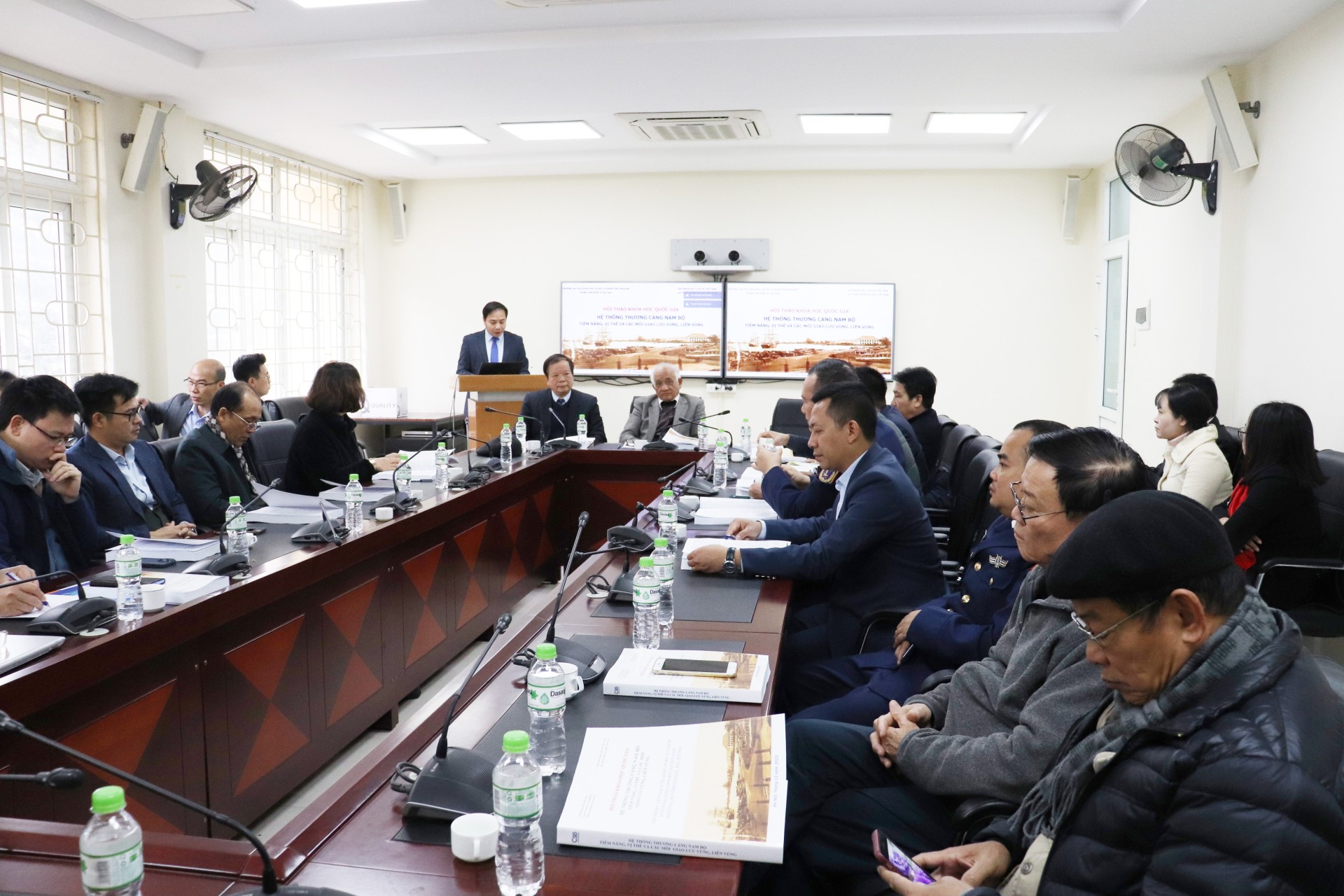
On behalf of the Organizing Committee of the Conference and the Board of Directors of the University of Social Sciences and Humanities, Vice President Dao Thanh Truong expressed his gratitude for the effective support and coordination of the Vietnam History Development Fund under the Vietnam Historical Science Association; as well as scientists from universities, academies, research centers in the Central region, Ho Chi Minh City and some provinces in the Southern region who were interested, wrote articles and attended the conference.
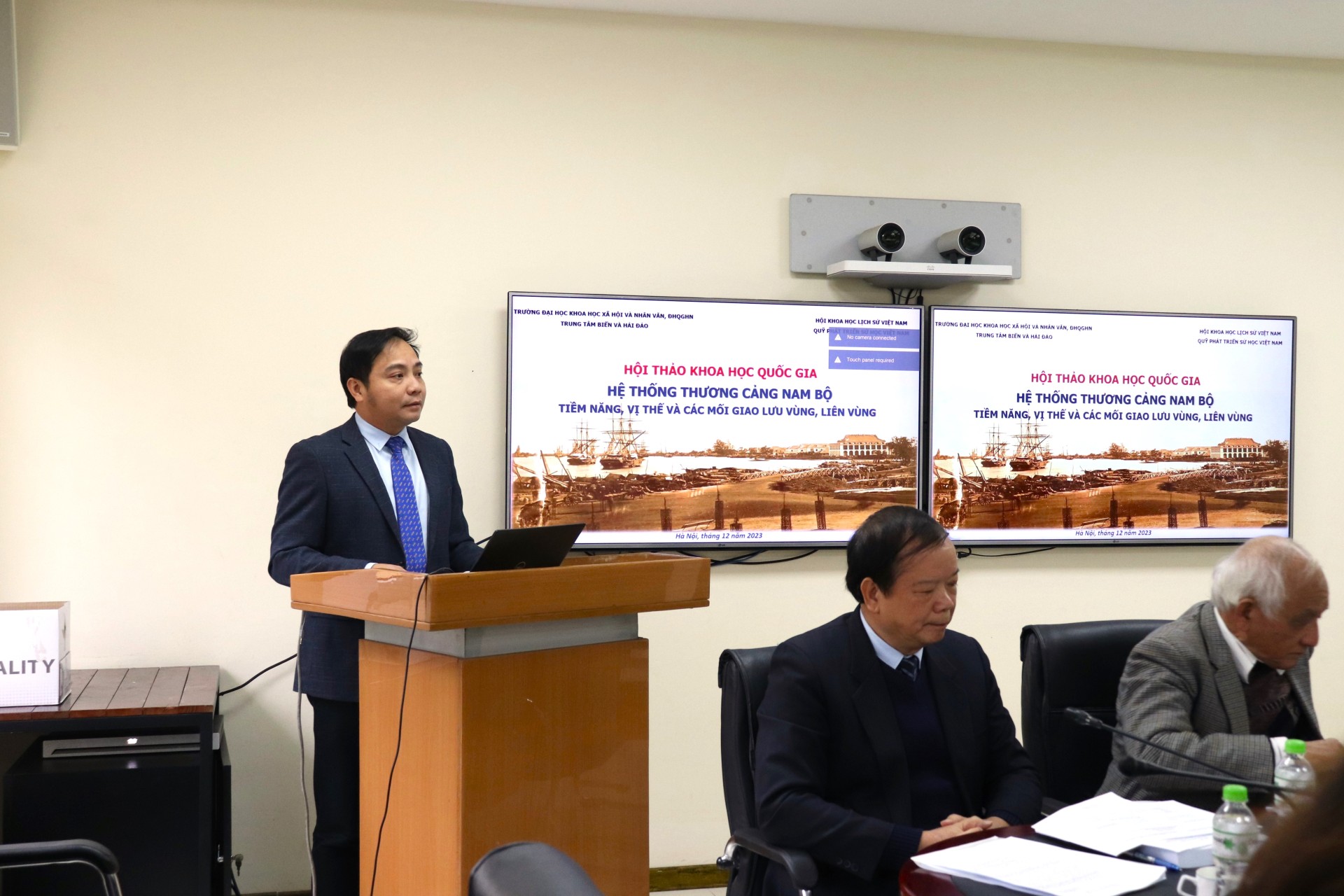
In the Conference Introduction Report, Associate Professor, Dr. Tran Duc Cuong (Chairman of the Vietnam Historical Science Association) emphasized that the Southern trading port system plays a very important role not only in the economic and cultural life of the residents in the region but also in the diplomatic activities and economic exchanges between Vietnam and Asian and world countries. Today's conference, with the participation of many scientists in the fields of history, cultural studies, archaeology, ethnology, international relations, urban studies, etc., hopes to bring new, deeper and more comprehensive understandings of the Southern trading port system in regional and inter-regional relations.
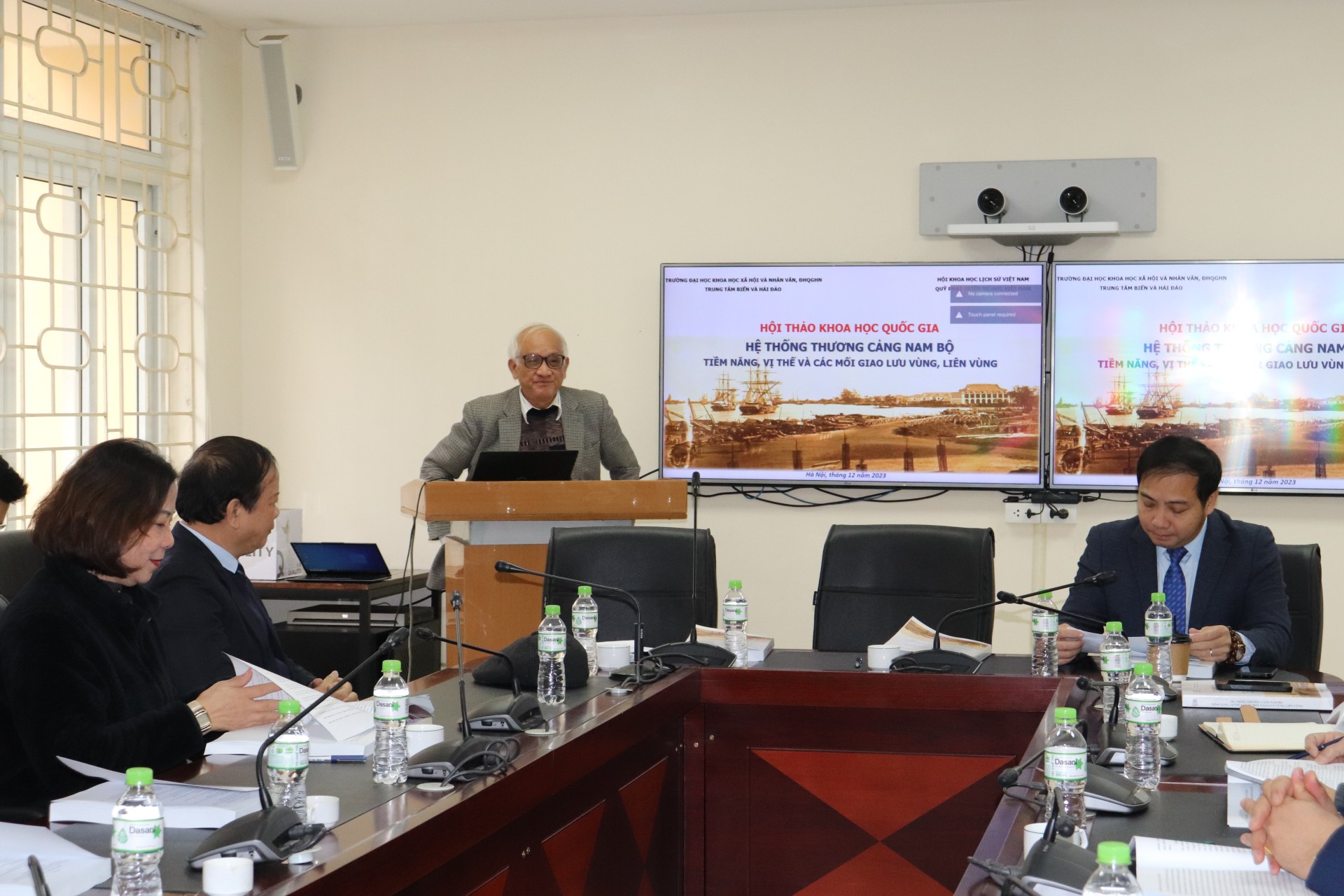
The Organizing Committee of the conference received 27 presentations from scientists. From specialized and interdisciplinary approaches (History, economic history, archaeology, historical geography, cultural studies, cultural management...). In addition to the general reports with theoretical value, the conference also had many in-depth reports, exploiting new sources of documents, results of the Archaeology sector, sources of investigation and survey materials in the locality.
In the opening overview report of the Workshop“Southern commercial port system: Role, structure and characteristics”,Prof. Dr. Nguyen Van Kim systematically analyzed the formation and development process of the Southern commercial port system through historical periods (foundation basis, development process, economic potential of the commercial ports, etc.), and affirmed the role and position of the Southern seaport system in trade activities, diplomatic relations with regions and economic spaces in Southeast Asia and Asia; clarified the contributions of residential communities, maritime cultures, domestic and foreign merchant communities to the South and the economic revival of Vietnam. The author of the paper emphasized: Along with the agricultural tradition, the Southern residents have long been talented craftsmen and artisans. They also have a tradition of exploiting the sea and are especially talented at seafaring. Understanding natural conditions, exploiting the natural position and potential of the delta, mountains, forests, rivers and seas, ancient ethnic groups built deep imprints in the Can Gio - Long Son culture and later the Oc Eo - Phu Nam culture.
By the 16th-19th centuries, in both the Southeast and the Southwest, on the Southwest sea and islands of the Fatherland, many economic centers and trading ports had been formed in all four spaces: River ports, river mouth ports, sea ports and island ports. In some trading ports such as Saigon - Gia Dinh or Ha Tien, ... a structure was formed with Vietnamese trading areas, Chinese trading areas, foreign trading areas (India, Southeast Asia, Europe, ..); Retail trading areas, wholesale trading areas. Or areas: Specialized in trading rice, specialized in trading agricultural products, specialized in trading seafood, specialized in trading fabrics, silk, ... All of which speak to the scale and professionalism in regional and international trade. Importantly, the development of the Southern economy in the 16th-19th centuries brought the Southern region into integration with the general development of Vietnam, contributing significantly to consolidating the country's strength, protecting the sovereignty and unity of the Vietnamese people.
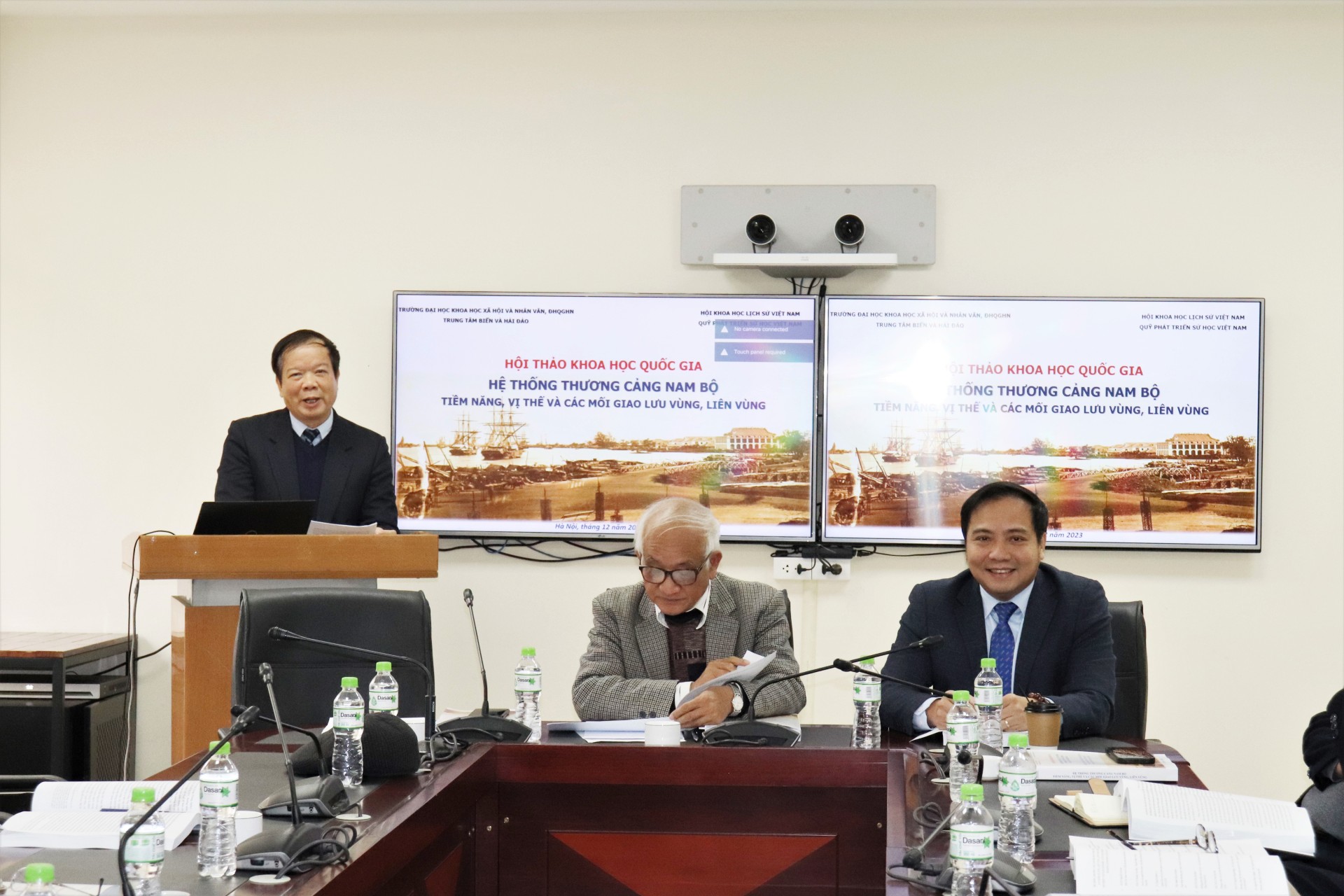
Prof. Dr. Nguyen Van Kim presented a report at the Workshop.
The workshop received many profound comments from scientists: “Premises and foundations of the formation of the Southern commercial port system" by Professor Dr. Lam Thi My Dung; "Cultural exchange in the South in prehistoric times: The case of archaeological sites in the Southwest coastal islands" by Associate Professor, Dr. Tong Trung Tin and Dr. Le Hai Dang; "The position of the Nen Chua relic in the trading activities of the ancient urban area of Oc Eo" by Associate Professor, Dr. Lai Van Toi; "The role of the Chinese in commercial activities of Southern ports" by Associate Professor, Dr. Duong Van Huy; "Saigon commercial port in the second half of the 19th century and the beginning of the 20th century: Potential and economic position" by Associate Professor, Dr. Nguyen Manh Dung and Dr. Tran Xuan Thanh; "My Tho Dai Pho Commercial Port" by Dr. Nguyen Phuc Nghiep - MSc. Nguyen Ngoc Lan Huong; "Boats and Gia Dinh boatyard in the 19th century" by Associate Professor, Dr. Pham Van Thuy - Master, PhD. Tran Van Manh,...
During the conference, there were presentations by experts in archaeology, history, and culture who provided scientific data from field research results to clarify the economic and cultural foundations of the residents and trading ports of the South. The discovery of many artifacts from other localities in the country, or originating from other countries (Japan, China, Arabia, Rome, etc.) in archaeological sites and many sunken ships in the South Sea has shown that this area is part of the vital trade system between Asian and inter-Asian countries.
The workshop had many selected reports presented and opinions were exchanged and commented enthusiastically. This showed that the participating scientists were very interested in the research topic, the role of the sea and islands and the commercial ports, the economic center of the South. The opinions were unanimous in affirming the important position and historical, economic, cultural, and national security value of the Southern seaport system not only in the past, but also in the present and the future.
With the evidence of a very rich collection of artifacts excavated at the relics in the southern sea and island areas, the report of the group of authors Associate Professor, Dr. Tong Trung Tin and Dr. Le Hai Dang (Institute of Archaeology) affirmed: Through initial studies on the system of archaeological relics of the southern sea and island areas, up to now, archaeologists of the Institute of Archaeology have been able to draw initial conclusions about the cultural nature of these relics: they are relics of the Sa Huynh culture, the southern sea and island type with outstanding characteristics of the Sa Huynh culture from the central region of Vietnam. The results of the research on the system of prehistoric and early historical archaeological relics and artifacts on the islands and archipelagos of the southern sea and island areas have added new marks to the archaeological map of Vietnam, contributing to clarifying the process - history - culture of the nation and also clarifying the structure and identity of Vietnamese culture, an important issue in the current period of opening, integration and international trade.
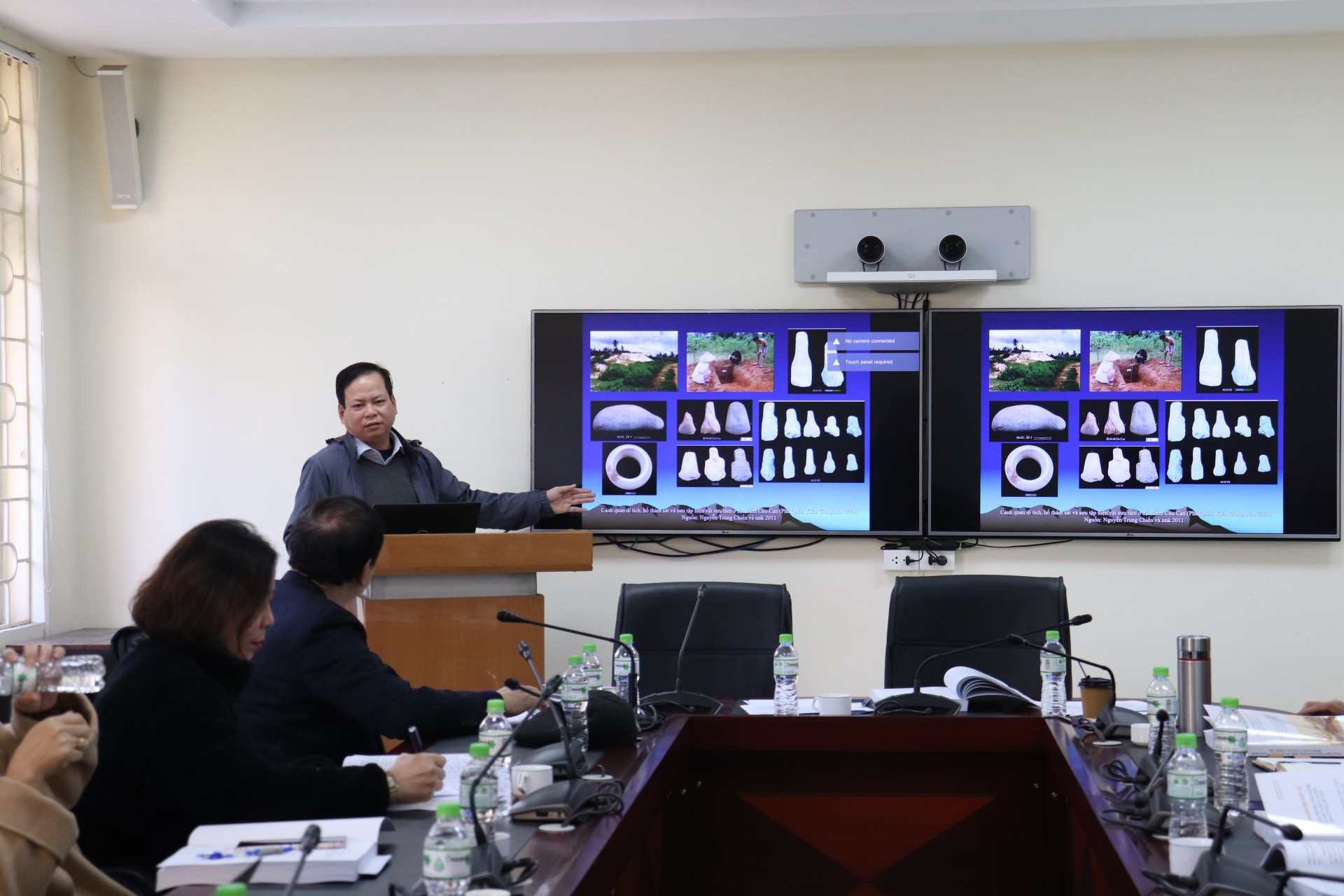
Dr. Le Hai Dang represented the group of authors to report at the Workshop.
From the approach of regional culture theory, Prof. Dr. Nguyen Chi Ben believes that the Southern coastal culture is a cultural region with many special elements. Among the geographical regions in our country, perhaps the Southern region is the region with the most concentrated maritime character. Current studies on the Southern coastal culture are only sketches, there is a need for more in-depth and comprehensive works!
Based on the analysis of the strengths and geographical position of the Southern Sea, which is especially strategic in terms of economy, security and defense, has many development advantages and is a large open door for the whole country to promote international exchanges and attract foreign investment, the report "Sustainable development of marine economy associated with protecting sovereignty in the Southern sea and island areas"Lieutenant Colonel Nguyen Thanh Minh (Deputy Director of the Coast Guard Training and Professional Development Center) proposed a number of solutions to develop the marine economy in conjunction with protecting national sovereignty.
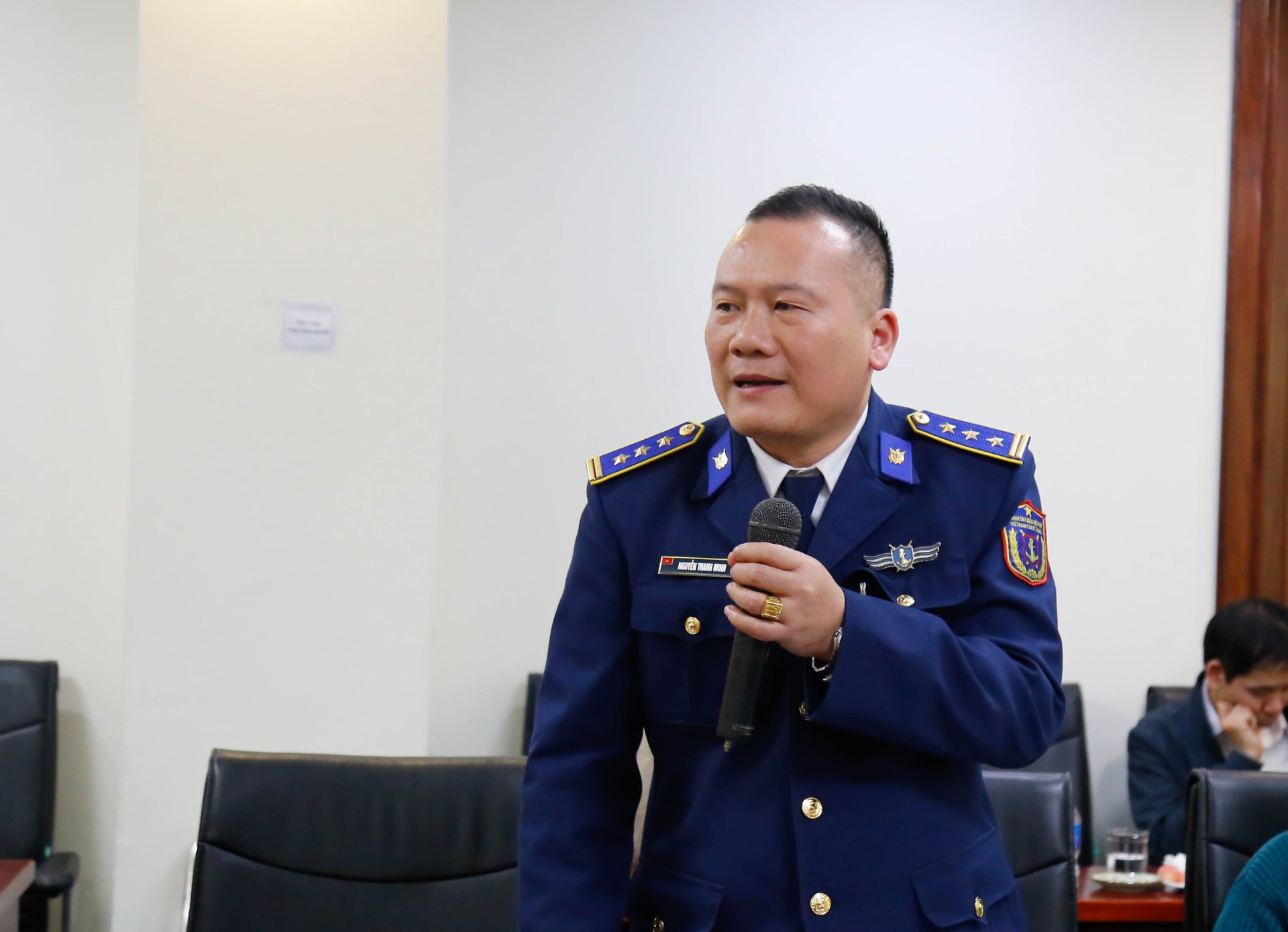
Lieutenant Colonel Nguyen Thanh Minh speaking at the Workshop
In summarizing the Workshop, Prof. Dr. Nguyen Van Kim, on behalf of the Organizing Committee, highly appreciated the new points, new perceptions and new discoveries from the authors' elaborate research. The success of the Workshop came from the very close coordination between the Center for Sea and Islands under the University of Social Sciences and Humanities and the Vietnam History Development Foundation under the Vietnam Historical Science Association, and the enthusiastic and responsible participation of a large number of domestic scholars attending with many approaches from archaeology, history, culture and society. The Workshop contributed extremely important scientific data, showing comprehensive, profound and multi-dimensional perceptions of the Southern space in general and the Southern sea and island space in particular. The results of the Workshop certainly contributed to clarifying scientific arguments, contributing to the successful implementation of the Vietnam Sea Strategy.
Prof. Dr. Nguyen Van Kim also shared: In response to the comments and suggestions at the Workshop, the authors will refine their articles so that the Organizing Committee can edit and publish other large-scale works on the Southern seaport system. Based on the achievements of scientific research and the opinions of experts, the Workshop will have some proposals and consultations with some localities in the South on research and training of staff, especially experts in island research; on the management and conservation of cultural heritage, as well as the development of economic and cultural life of residents.
Some photos at the Workshop
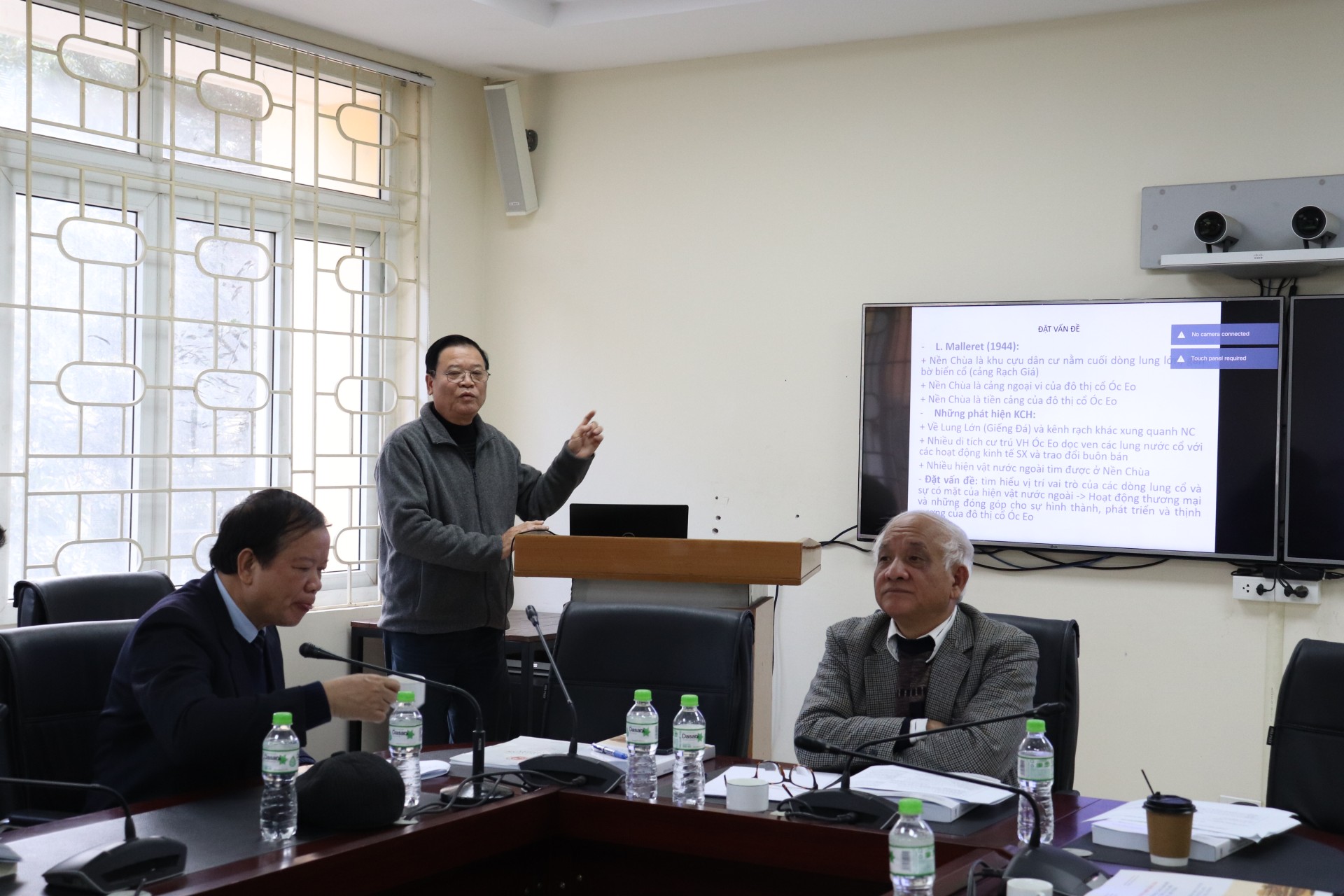
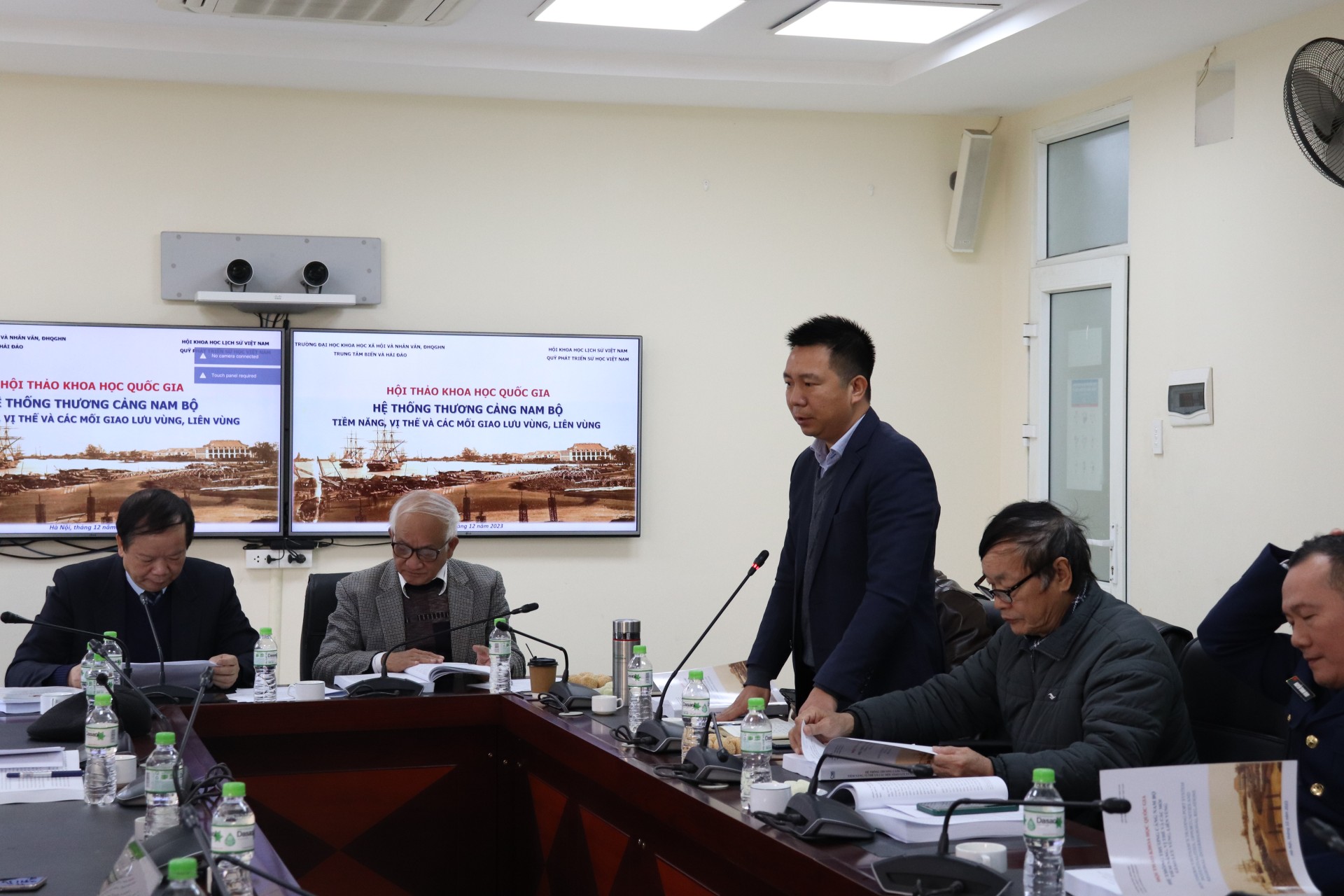
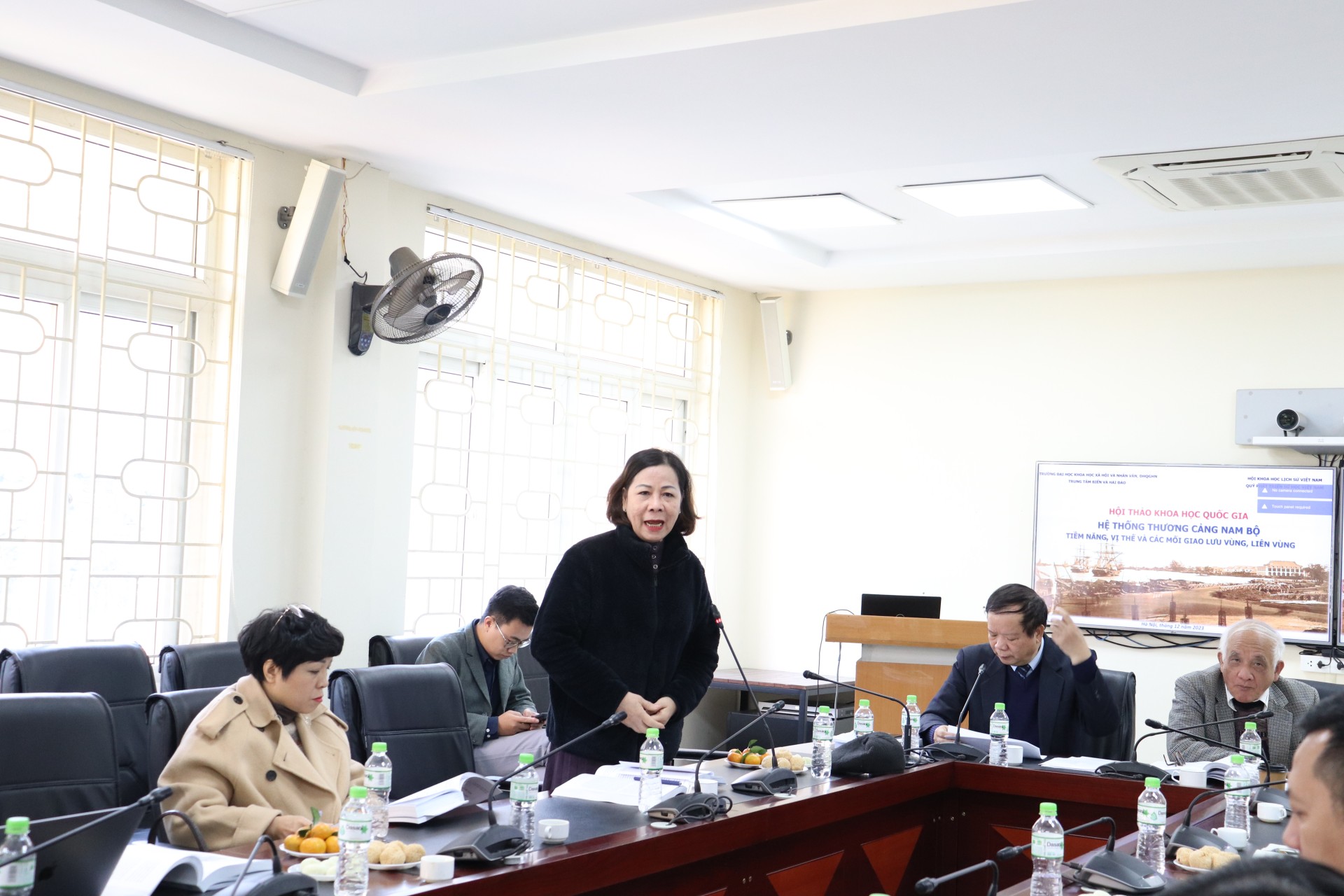
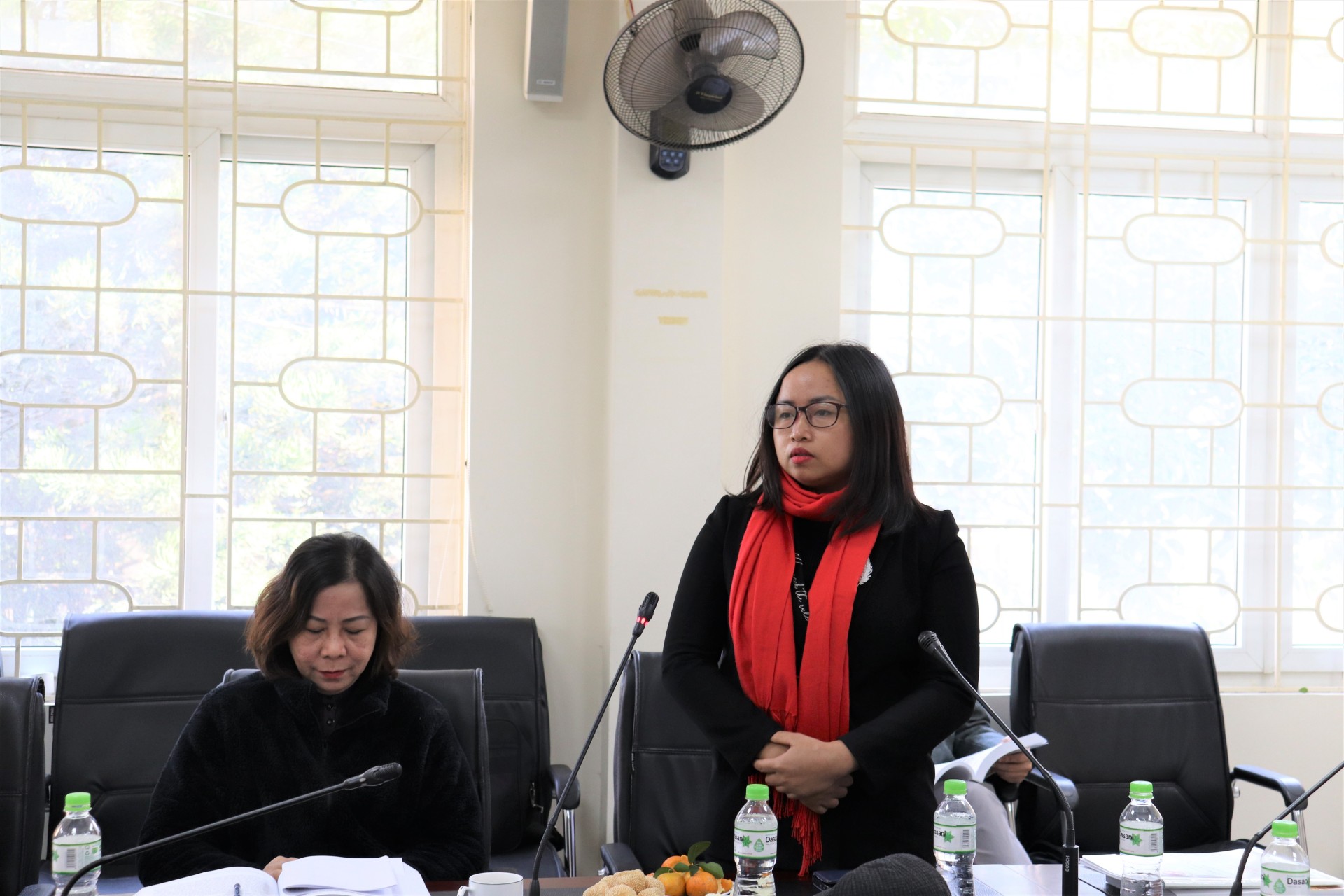
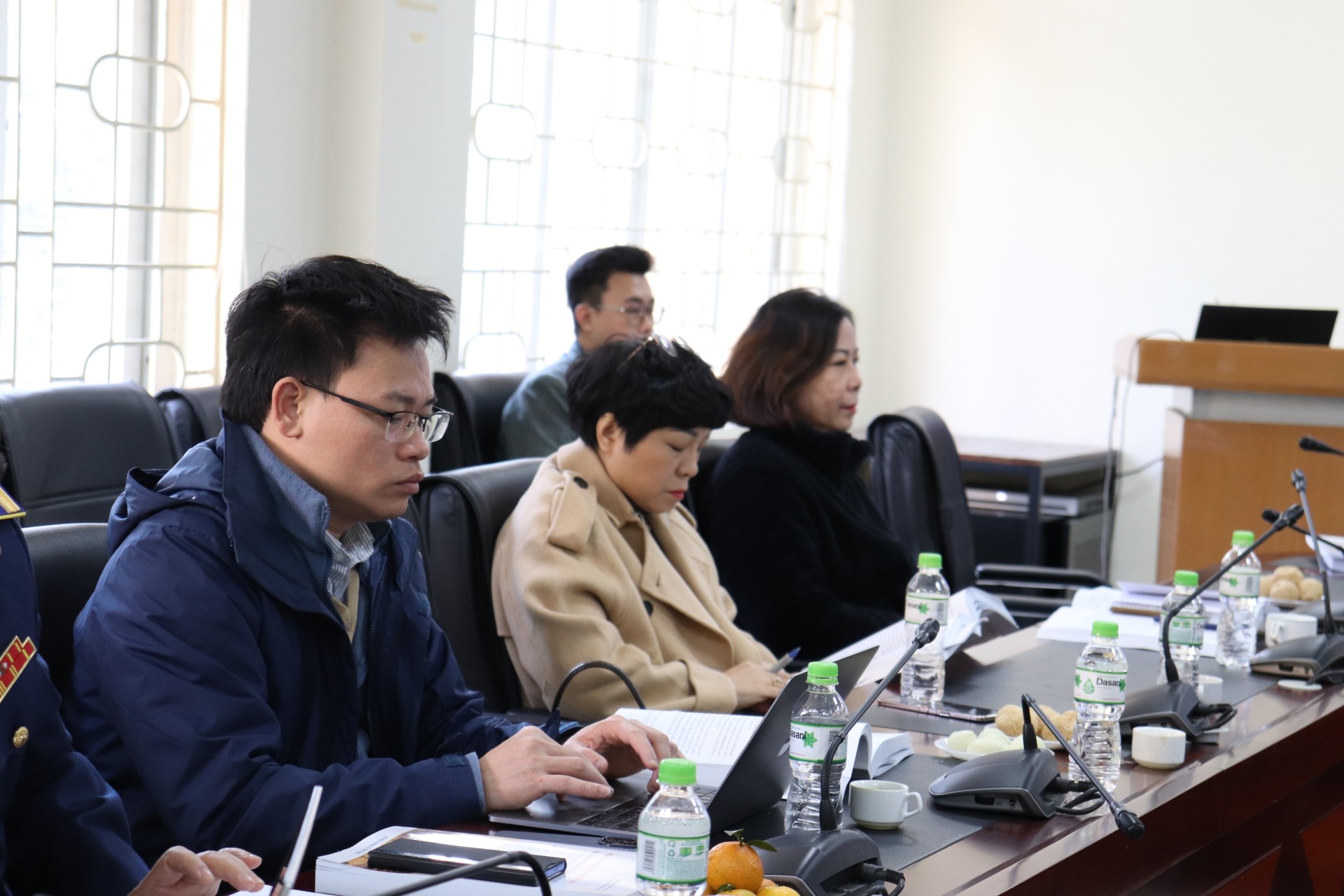
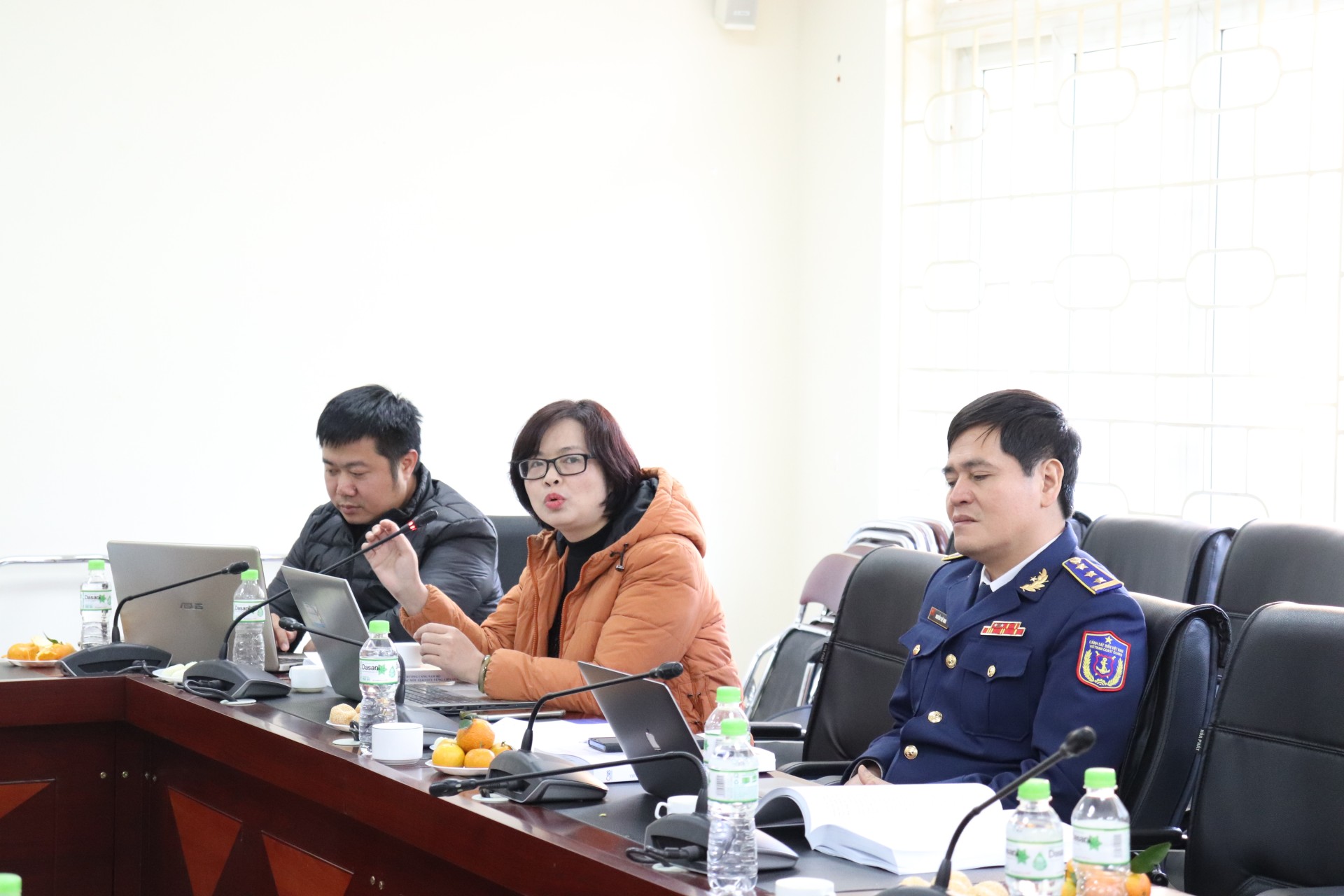
Author:Hanh Quynh - USSH Media
Newer news
Older news